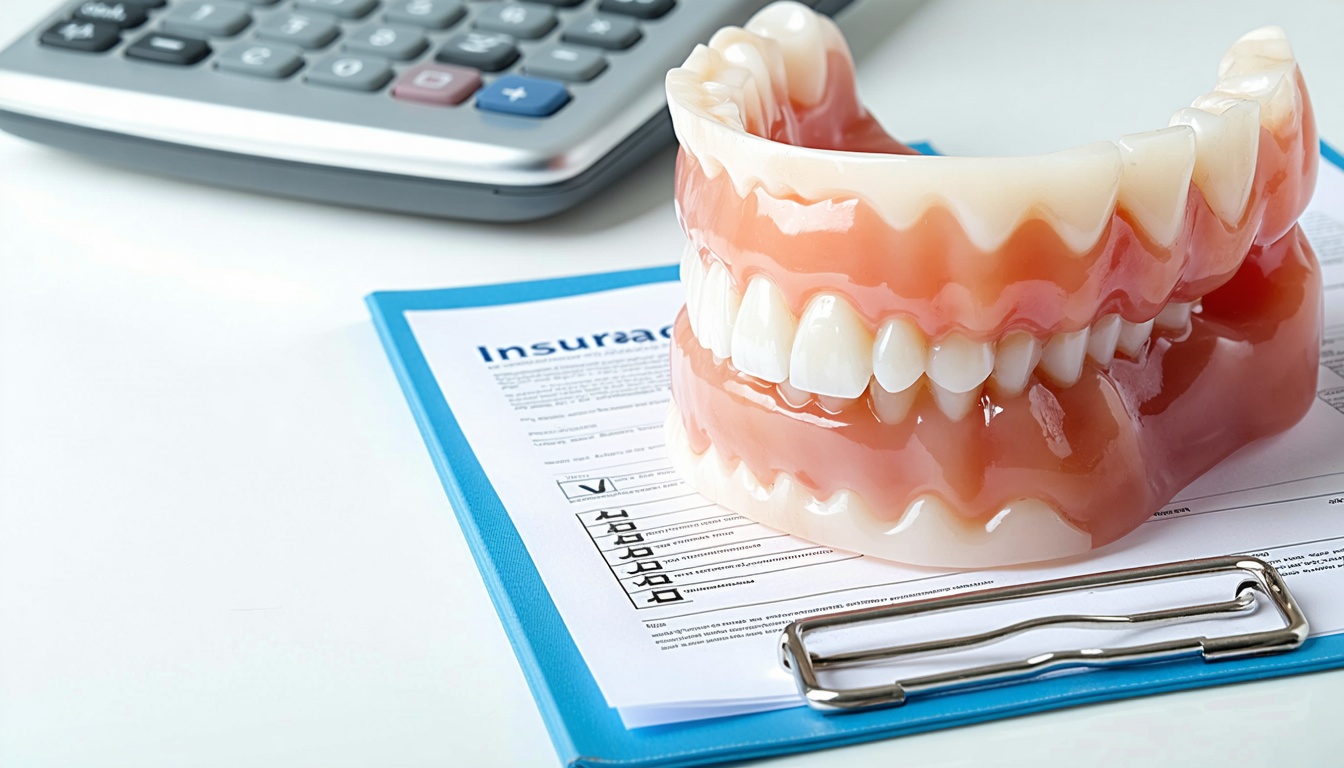
Navigating insurance that covers permanent dentures can feel overwhelming, especially if you’re managing missing teeth, gum disease or bone loss. Permanent dentures, also known as fixed prosthetics or implant-retained dentures, offer greater stability than removable plates but often come with higher upfront costs. By understanding how different dental and medical plans approach coverage, you can find affordable options that restore your smile and oral function in the Charlotte area.
Permanent dentures attach to dental implants or natural teeth, preventing slipping and enhancing chewing efficiency. There are two main types:
Both options require surgical placement, follow-up appointments and periodic maintenance.
Choosing permanent over removable dentures delivers several advantages:
Out-of-pocket expenses for permanent denture solutions vary widely:
According to the American Dental Association 2020 Survey of Dental Fees, traditional complete dentures range from \$1,420–\$2,747, while partials can cost up to \$3,100 (Humana). Without coverage, most patients face substantial bills.
Dental policies typically include:
Knowing your plan details helps you budget and schedule treatment strategically to reduce out-of-pocket costs.
Insurance options fall into two main categories: private dental plans and government-sponsored programs. Understanding their structures will help you pick the right coverage for permanent dentures.
Private carriers offer several plan types:
Key features:
Cigna’s full coverage options extend beyond preventive care to include bridges and dentures, though coverage may cap at 50% for major services (Cigna). You can locate an in-network provider using cigna in-network denture provider.
If you qualify for Medicaid in North Carolina, you may access partial to full denture benefits through state plans. Coverage details differ by state, but common features include:
Check your eligibility and covered services using full dentures covered by medicaid and medicaid coverage for removable dentures. If you need repairs or relines, explore denture replacement accepted by medicaid.
Different insurers handle permanent denture claims in distinct ways. Review each carrier’s rules before scheduling surgery.
Aetna’s plans may cover implant-retained overdentures as a major service, typically at 50%. Waiting periods can apply. You can confirm benefits with an aetna dentist for deep gum cleaning or ask about implant-supported dentures with aetna.
Cigna covers fixed bridges and partial dentures at 50–60% after the deductible. For implant procedures, coverage often caps at a set allowance per implant. Use cigna in-network denture provider to find specialists who bill Cigna directly.
BCBS PPO plans commonly offer 50% coverage for major prosthetics. Some Blue plans include higher allowances for snap-in dentures or overdentures. Ask your representative about snap-in dentures covered by bcbs.
Coverage tiers vary by state, but many Delta PPO plans reimburse up to 50% for major services. Check whether your plan covers implant components through delta dental implant denture dentist.
When evaluating options, compare premiums, deductibles, waiting periods and annual maximums. The table below highlights typical plan features:
| Plan type | Annual max | Deductible | Waiting period | Major service coverage |
|---|---|---|---|---|
| PPO | \$1,000–\$1,500 | \$50–\$150 | 6–12 months | 50% |
| HMO | No max | \$0 | 0–6 months | 50–60% |
| EPO | \$1,000–\$1,500 | \$50–\$100 | 6–9 months | 50% |
| POS | \$1,200–\$1,500 | \$50–\$100 | 6–12 months | 50–60% |
Major prosthetic services rarely exceed 60% coverage. If your plan follows a 100-80-50 structure, expect:
If full dental insurance is out of reach, consider these options to lower costs.
Dental savings plans offer negotiated fees on services, including dentures, without waiting periods or annual caps. You pay a yearly membership fee—typically \$100–\$200—and receive 10–60% off dental work.
If you have an HSA or FSA, you can allocate pre-tax dollars to cover for permanent denture placement, implants and lab fees. This reduces your taxable income and out-of-pocket expenses.
Local dental schools, nonprofits and community clinics sometimes offer sliding-scale fees or donation-based services for fixed dentures. These programs can significantly cut costs if you’re uninsured or underinsured.
By planning strategically, you can stretch your coverage further and minimize out-of-pocket costs.
Staying in-network helps you avoid balance billing and ensures you receive negotiated rates.
For complex cases involving gum disease or bone grafting, you may need a periodontist or oral surgeon. Use resources like delta dental gum disease specialist to identify experienced providers.
Choosing an insurance plan that covers permanent dentures involves balancing costs, coverage levels and provider access. Start by:
By taking these steps, you can secure affordable coverage for permanent dentures and rebuild your oral function with confidence. For more information on gum health, see gum therapy covered by cigna dental or explore periodontal services through medicaid periodontal services.


